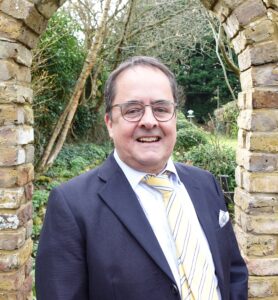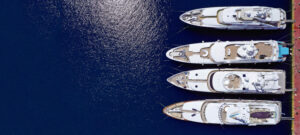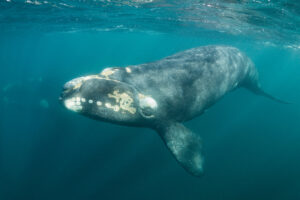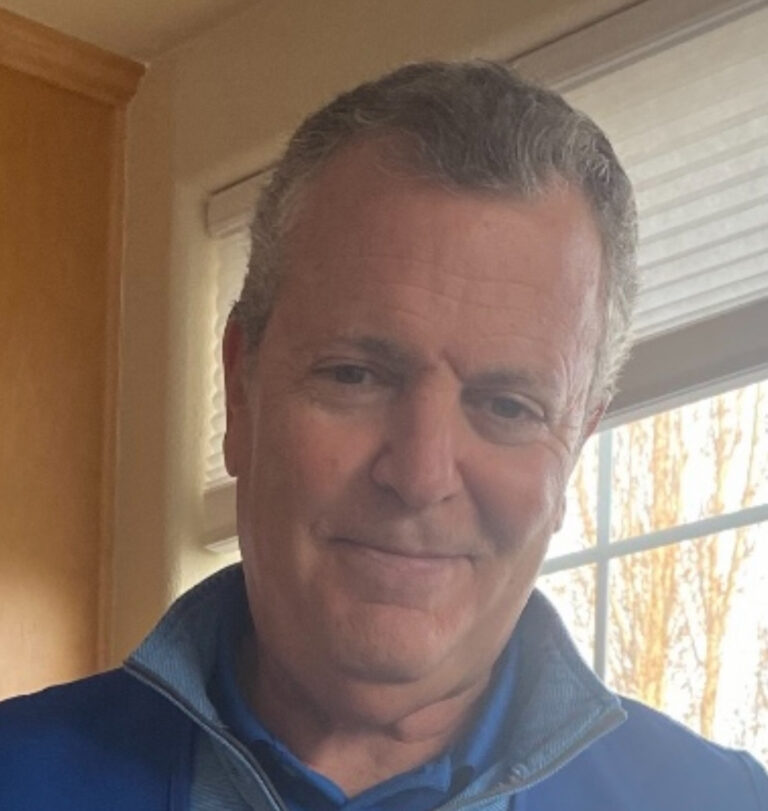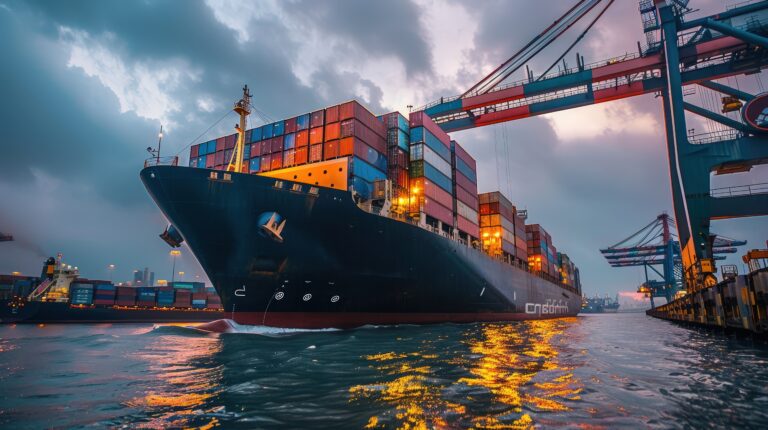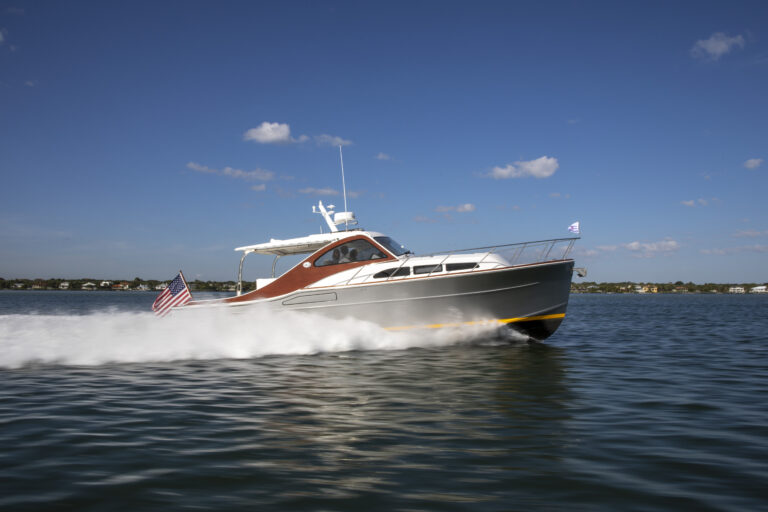
Owners of small boats or personal watercraft jaunt to the local boat ramp each weekend, and an aluminum trailer of any reputable brand helps them get the job of launching done. A couple of rails with assorted pads, decent wheels and lights is just fine, and requires minimal expense and maintenance.
But for owners of 40-plus-foot catamarans or multistepped, vee-bottom center consoles with quad (or more) outboards, chances are that a more significant investment has been made in the trailer. The latter boater is the target client of MYCO Trailers, a Bradenton, Fla.-based company that builds custom welded trailers. MYCO not only supplies trailers to boaters, but also has built them for the Coast Guard, the Navy SEALs and other government agencies.
“We will only recommend or let a MYCO go under a Mystic,” says John Cosker, a naval engineer and founder of Mystic Powerboats, whose models range from 38 to 43 feet. “It’s not just a company. It’s family. I took my first 3D modeling project to them in 1998, the first hull of the 55 Callan [raceboat].”

MYCO started out building trailers for lawn mowers. In 1974, Dave Albert bought the company to build proper trailers for his raceboat. After he died in a boat-testing accident, his brother Mike bought the company and, in 1984, built the facility where MYCO still operates today.
At first, the company built trailers by hand-measuring boats. That process was time-consuming but set the company apart, as did its hand-welded crossmembers, bunks and hull support columns; its precisely measured winch stands, walk-on fenders and hydraulic surge brake actuators; and its 5,000-pound tongue and galvanized torsion axles. Owners could have positive-pressure, airtight wheel hubs to prevent water and contaminants from entering, and visual indicators that allow for simple inspection of seals and bearings. The specs and options for ladders, toolboxes and other conveniences ran long.

Today, the company still does some hand-measuring but also uses 3D modeling to ensure that each trailer has a proper fit. Designers or builders send digital specs to MYCO, which creates 3D models that take into consideration a vessel’s through-hulls, seals and individual steps. Clients include Florida-based designer Michael Peters (who calls MYCO a “very sophisticated company”), along with such builders as Cigarette, Donzi and Invincible.
“A MYCO trailer just fits,” Cosker says. “Because of the 3D modeling, it has the right support, bunk systems, matched hull points, clean welds. It travels and launches well.”
Like other respected boatbuilders, including MTI, Freeman, Doug Wright and others, Peters trusts MYCO with the digital copies of his boats, and the company uses the 3-D solid models to create a perfectly fitted trailer. This matching process provides the exact hull support, accommodates the center of gravity and ensures that the boat sits securely on the trailer — no adjustments necessary.

Cosker says his own 2004 MYCO trailer has traveled across the country and launched in salt water for 16 years. Clients at his and other yards will spend from about $85,000 to six figures for “show” trailers that display boats at poker runs and other events, he says.
MYCO also makes custom cradles and stack storage. Hamilton Harbor Yacht Club in Naples, Fla., uses MYCO cradles; the forklift never touches the boat as it is lowered into the water, eliminating potential liability costs. “The cradle is like a trailer without wheels or electrical components, perfectly fitted to the hull,” says director of marina operations Greg Kessler. MYCO cradles are required for all boats on the second and third level of the marina, at a price of $5,000 to $13,000. “You have to use MYCO if you’re going to store here,” Kessler adds.

The same goes for boat owners who hire HONC Docks & Lifts in Cape Coral, Fla. “We can get a standard set of bunks, try to get them to fit, spend a day adjusting them, or we can call MYCO,” says HONC president Dan Stovall. “They digitally put it together, and I just bolt it to the lift. I can’t think of one I’ve had to adjust. No phone calls about pressure, through-hulls or weight on the steps.”
MYCO president Price Taylor says the company is expanding its Bradenton facility to speed construction on orders, and is looking to introduce its custom offerings to boat owners in more segments. “The larger fishing boat and performance center console market has really opened up,” Taylor says, “and smaller trailer companies really can’t build what we do.”
This article was originally published in the September 2020 issue.


